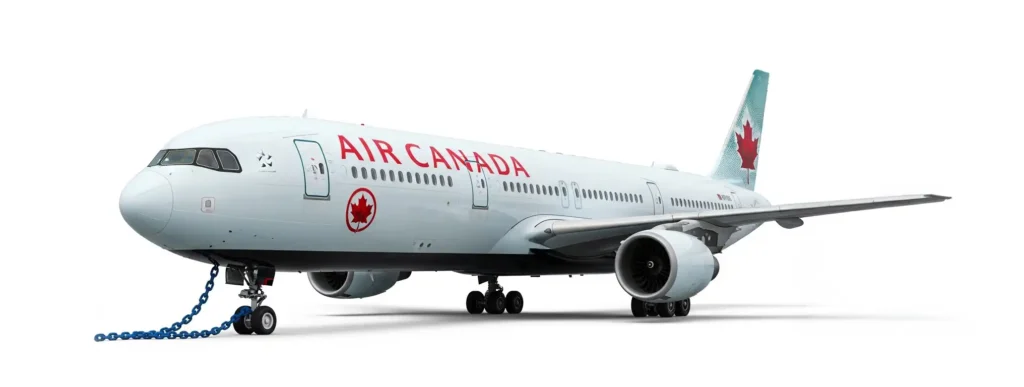
Air Canada Strike 2025
TL;DR
The August 2025 Air Canada strike, involving 10,000 flight attendants represented by CUPE, escalated from a contract dispute over unpaid "groundwork" and wages into a national crisis. The strike grounded Canada's largest airline, impacting hundreds of thousands of travelers and posing a significant threat to the Canadian economy. The federal government's swift intervention using the Canada Labour Code was met with unprecedented defiance from CUPE, which declared the back-to-work order unconstitutional. This report analyzes the strike's origins, its economic impact, the government's controversial actions, and the long-term implications for Canadian businesses, labor relations, and corporate strategy.
Article Index
- The Anatomy of the Impasse: Deconstructing the 2025 Collective Bargaining Failure
- Escalation and Paralysis: From Picket Lines to National Disruption
- The Federal Intervention: An Examination of Section 107 and the CIRB's Mandate
- Unprecedented Defiance: CUPE's Constitutional Challenge and the Standoff
- Industry Context and Comparative Analysis
- Strategic Analysis and Forward Outlook
The Anatomy of the Impasse: Deconstructing the 2025 Collective Bargaining Failure
The August 2025 Air Canada strike was the boiling point of eight months of failed negotiations. The core of the dispute was the replacement of a decade-old collective agreement. This wasn't just about pay bumps; it was a fundamental clash over modernizing compensation and addressing long-held grievances in a post-pandemic world. The two main battlegrounds were the valuation of on-duty time and the adequacy of wage increases in an inflationary economy.
The Centrality of "Unpaid Work": A Legal and Industry Analysis
The primary driver of the dispute was the union's demand for full compensation for all hours worked. This was a direct assault on the airline industry’s long-standing practice of paying flight attendants mainly for "block hours"—the time from gate pushback to arrival. This model ignores crucial on-duty tasks like pre-flight safety briefings, security checks, boarding, and deplaning. CUPE powerfully framed this as "Work without pay is theft," a slogan that resonated with employees and the public.
Air Canada offered to pay 50% for some of this groundwork, but CUPE held firm for 100%, fortified by a trend across North America. Landmark agreements at Delta, American, and Alaska Airlines had already set a new precedent for paying for boarding time, making CUPE's demand an industry standard they were unwilling to compromise on.
Economic Disparity: Analyzing Wage Proposals and Competing Narratives
Air Canada publicly touted its offer as a "38% increase in total compensation" over four years, projecting a senior flight attendant would earn C$87,000 by 2027. CUPE, however, dismissed this as misleading, arguing the base wage increase of 8% in the first year was effectively a pay cut due to recent high inflation. The union highlighted that entry-level wages of C$27,000 annually had barely budged in real terms since 2000, while consumer prices had soared by nearly 70%.
| Bargaining Position | Air Canada (Management) | CUPE (Union) |
|---|---|---|
| Headline Offer/Demand | 38% increase in "total compensation" over four years | Wage increases to meet or exceed inflation; full compensation for all hours worked |
| Year 1 Wage Increase | 8% | Rejected as "below inflation" |
| Groundwork Pay | Offered to pay 50% of hourly wage for some groundwork duties | Demanded 100% of hourly wage for all on-duty groundwork |
| Projected Senior Salary | Approx. C$87,000 by 2027 | N/A (Offer rejected as below market value) |
| Stance on Arbitration | Requested government-directed binding arbitration before the strike | Rejected arbitration, insisting on a negotiated settlement |
Escalation and Paralysis: From Picket Lines to National Disruption
The strike began just after midnight on August 16, 2025, instantly paralyzing Air Canada's operations during the peak summer travel season. The shutdown's speed and scale created a national economic and logistical crisis.
| Date | Time (EDT) | Event |
|---|---|---|
| August 13, 2025 | Early Morning | CUPE serves Air Canada with a 72-hour strike notice. |
| August 13, 2025 | Following Notice | Air Canada responds with a 72-hour lockout notice. |
| August 16, 2025 | 00:58 | Strike begins. 10,000 flight attendants walk off the job. |
| August 16, 2025 | Morning | Jobs Minister announces government intervention under Section 107 of the Canada Labour Code. |
| August 17, 2025 | Afternoon | The CIRB issues its first directive, ordering flight attendants to return to work. |
| August 17, 2025 | Afternoon | CUPE announces its intention to defy the back-to-work order, calling it unconstitutional. |
| August 18, 2025 | Morning | Following an emergency hearing, the CIRB declares the ongoing strike "unlawful". |
Operational Shutdown and Economic Fallout
The strike grounded approximately 700 daily flights, affecting an estimated 130,000 passengers each day. By the third day, half a million customers had their flights canceled, including 25,000 Canadians stranded abroad. The financial bleeding for Air Canada was immediate, with analysts estimating daily revenue losses in the tens of millions of dollars. In response, the airline suspended its financial guidance for the fiscal year, a clear signal of the strike's severe and unpredictable financial impact.
The Federal Intervention: An Examination of Section 107 and the CIRB's Mandate
The federal government's decision to intervene less than 12 hours into the strike transformed the dispute into a national political and legal crisis. Jobs Minister Patty Hajdu invoked Section 107 of the Canada Labour Code, a controversial move that allows the government to end a work stoppage to protect the national economy. The government cited the "immediate negative impact on Canadians" as its justification, a pattern of intervention seen in previous disputes with port, rail, and postal workers.
This action prompted the Canada Industrial Relations Board (CIRB) to issue a back-to-work order, which was subsequently defied by the union. The CIRB then declared the strike "unlawful," setting the stage for a major legal confrontation.
| Intervention | Date / Time | Action Taken | Legal Authority |
|---|---|---|---|
| Ministerial Referral | August 16, 2025 (Morning) | Referred dispute to CIRB, directing an end to the work stoppage. | Section 107 of the Canada Labour Code. |
| First CIRB Order | August 17, 2025 | Ordered flight attendants to cease striking and return to duties. | Directive from the Minister of Jobs. |
| Second CIRB Declaration | August 18, 2025 (Morning) | Declared the ongoing strike "unlawful" and ordered CUPE to revoke strike authorization. | Application of the Canada Labour Code following union defiance. |
Unprecedented Defiance: CUPE's Constitutional Challenge and the Standoff
In a rare and high-risk move, CUPE's leadership chose to openly defy the federal government and the CIRB. The union publicly declared the back-to-work order an unconstitutional infringement on its members' Charter-protected right to strike. In a dramatic act of defiance, CUPE National President Mark Hancock publicly ripped up the CIRB's order, signaling the union would not be intimidated.
This decision carried severe potential consequences, including steep fines and the imprisonment of union leaders. However, CUPE framed its defiance as a principled stand for collective bargaining rights, a position that began to rally support from the broader Canadian labor movement. The union's strategy shifted from an economic battle with Air Canada to a constitutional fight against government overreach.
Industry Context and Comparative Analysis
The Air Canada strike is not an isolated event but a part of a global wave of labor unrest in the post-pandemic aviation industry. Airline workers worldwide are leveraging a tight labor market and resurgent travel demand to push for better pay and conditions. Landmark contracts won by flight attendants and pilots at major U.S. carriers set high benchmarks for compensation, directly influencing CUPE's demands. Frequent disruptions in Europe further highlight the global trend of labor assertiveness. The Air Canada dispute is the Canadian chapter in a worldwide story of labor demanding its share of the industry's renewed prosperity.
Strategic Analysis and Forward Outlook
The 2025 Air Canada strike has fundamentally altered the landscape for the airline, its employees, and Canadian labor relations. The long-term consequences will extend far beyond a single collective agreement.
Ramifications for Canadian Businesses
For businesses reliant on travel and shipping, the strike is a stark reminder of the vulnerability of supply chains. The disruption underscores the need for contingency planning and diversified logistics. The reputational damage to Air Canada may also shift corporate travel preferences towards more reliable carriers, impacting long-term contracts and business relationships.
The Future of Collective Bargaining
The outcome of CUPE's legal challenge to Section 107 will be monumental. A victory could strengthen organized labor across Canada, while a loss could entrench the government's power to intervene in economically significant disputes. CUPE's defiance may also embolden other unions, potentially leading to more confrontational labor disputes in the future.
Is Your Business Prepared for Labour Disruptions?
Effectively managing employee time, attendance, and scheduling is crucial, especially during times of uncertainty. TimeTrex provides powerful, integrated solutions to help your business maintain operational stability and ensure fair, accurate payroll processing, no matter the circumstances.
Learn More About TimeTrex Time & AttendanceDisclaimer: This article is an analysis of publicly available information regarding the 2025 Air Canada strike and is intended for informational purposes for Canadian businesses. It does not constitute legal or financial advice.
Disclaimer: The content provided on this webpage is for informational purposes only and is not intended to be a substitute for professional advice. While we strive to ensure the accuracy and timeliness of the information presented here, the details may change over time or vary in different jurisdictions. Therefore, we do not guarantee the completeness, reliability, or absolute accuracy of this information. The information on this page should not be used as a basis for making legal, financial, or any other key decisions. We strongly advise consulting with a qualified professional or expert in the relevant field for specific advice, guidance, or services. By using this webpage, you acknowledge that the information is offered “as is” and that we are not liable for any errors, omissions, or inaccuracies in the content, nor for any actions taken based on the information provided. We shall not be held liable for any direct, indirect, incidental, consequential, or punitive damages arising out of your access to, use of, or reliance on any content on this page.
About The Author

Roger Wood
With a Baccalaureate of Science and advanced studies in business, Roger has successfully managed businesses across five continents. His extensive global experience and strategic insights contribute significantly to the success of TimeTrex. His expertise and dedication ensure we deliver top-notch solutions to our clients around the world.
Time To Clock-In
Start your 30-day free trial!
Experience the Ultimate Workforce Solution and Revolutionize Your Business Today
- Eliminate Errors
- Simple & Easy To Use
- Real-time Reporting

Saving businesses time and money through better workforce management since 2003.
Copyright © 2025 TimeTrex. All Rights Reserved.
